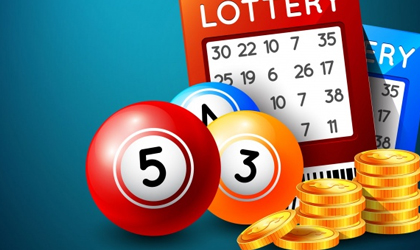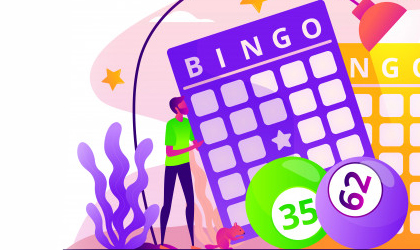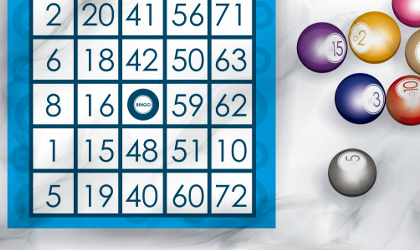Online Lottery Syndicates Explained

06:37 May 6th, 2020 Lottery
Some gambling and gaming terms can be confusing when you first encounter them. The word 'syndicate' can be a noun or a verb and it can be used to describe different things and activities.
When you hear the term "lottery syndicate" it might not be immediately apparent that the term describes something quite simple…
A group of lottery players working as a team to increase each member's chance to win.
By pooling resources players can purchase more lines, increasing the chance to hit a lucky combination.
Each player in the pool will share in the winnings. However, the winnings will be shared among the players.
Who participates in syndicates?
 Co-workers and family members often go in together on a lottery draw. They pool their money to buy more tickets and agree to share the prize(s) when they win. Agreements can be formal or informal.
Co-workers and family members often go in together on a lottery draw. They pool their money to buy more tickets and agree to share the prize(s) when they win. Agreements can be formal or informal.
Major lotteries like the National Lottery in the UK actually encourage players to form consortiums. They focus advertising on the social aspects of playing and winning together and offer tips on how to build a team, how to organize, agree, and share in prizes. They even supply a fill-in-the-blanks Syndicate Agreement to help players stay in accord with each other.
You might be wondering…
Is there a better way?
Some online lottery betting providers offer a simpler way to take advantage of strength in numbers.
Those who may not want to deal with the social or contractual aspects of playing with others have options as well in an “anonymous player pool”.
Rather than recruiting members for your online player pool, you can simply purchase shares in one without ever knowing who the other participants are.
Players are not limited to the games of specific local providers. Nearly every lottery in the world is available to play online in one way or another.
You can play El Gordo, Euro Millions, US Powerball, or the New York Lotto to name a few and you can buy shares in player pools that participate in multiple draws.
How do online consortiums work?
Each ticket reseller, lotto agent, or numbers betting site will have their own process but most elements remain the same no matter where you choose to join a lotto group online.
- Browse to choose a syndicate
 Look through all of the combinations currently available. Some will offer 100 lines on a single game's draw, and others may have multiple entries.
Look through all of the combinations currently available. Some will offer 100 lines on a single game's draw, and others may have multiple entries.
Assuming you join a partnership purchasing 100 lines (100 tickets) and the group was formed to play Euro Millions you will participate in all one hundred unique number combinations for that draw. You will buy and own shares in the total pool of 100 tickets.
Everyone who purchases shares will win if any of the 100 lines is a winner.
Most groups have a certain number of shares available. Each share represents an equal piece of the pie. If only 50 shares are initially available, each share is worth 2% of the total.
Unless you subscribe to a syndicate (automatically purchase a certain of shares each time they become available) you may need to act fast to secure your shares in a popular partnership draw. It's not unusual to log in and find only 5 or 6 shares still available in an offering of 50 or 75 shares.
- Purchase your shares
Let's assume the association you join will purchase 100 tickets/line and there are 23 shares left in an offering of 50 total shares. Choose how many shares you want to buy and proceed to make your purchase.
Let's assume you bought only one share. You now own 2% of all winnings from those 100 tickets. Your chance of winning something is 100X greater than your chance of winning if you bought a single ticket.
If only one ticket/line wins and the prize is $10,000, each share is worth 2% of that prize, or $200. If the prize is $100,000 each share will pay $2,000. If the prize is $1,000,000, each share is worth $20,000.
Is there a mathematical advantage?
 The short answer is, it depends. You may be better off for small prizes and very big prizes but no better off for medium-sized wins.
The short answer is, it depends. You may be better off for small prizes and very big prizes but no better off for medium-sized wins.
Your overall odds do not improve, but your chances of winning do because you are playing with 99 additional tickets.
- Small prizes - With more ticket purchases you may have a better chance to accumulate small winnings. This advantage disappears compared to purchasing individual tickets and can be offset completely depending on any administrative costs that might be built into the price of each share.
- Medium prizes - A 2% share of a $500 prize is only $10. It takes a very rational mindset to be happy with a prize like that and to accept that sharing is the price you pay to increase your chances of winning a jackpot.
- Jackpot prizes - This is the best reason to play in a lottery with group purchasing power - the chance to win and share in a big prize. Buying four or five shares (an 8%-10% stake) in a pool that wins $100,000,000 would be a wonderful thing for most people.
The odds of winning a big jackpot are still astronomical, but somebody has to win eventually, and participating in 100 lines greatly increases your chances of claiming your part of a jackpot win.
Of course, if you could afford to risk the money for entertainment, you might be happier simply purchasing 100 tickets for yourself. That way you would have 99 more chances of hitting the jackpot than you would with a single ticket, and you would not have to share the winnings.
You could also buy 100 tickets each week for the rest of your life and never win a jackpot.
Pros and Cons of Lottery Syndicates
- Pro - More chances to win
- Con - Winnings are shared
- Pro - Better chance to win jackpot prizes
- Con - Jackpots are shared
- Pro - More likely to win small prizes
- Con - It can take a while to build up enough small wins to buy shares
- Pro - Online syndicates are easy to join and play
- Con - The social aspect might be missed
Lottery Syndicate Facts
- Players have more chances to win and share in a jackpot
- One in five of top game prizes in Lotto, EuroMillions, and UK Millionaire Maker is awarded to an organized group of players in the UK
- All major lotteries in the world are available to play online in a group
On This Page



